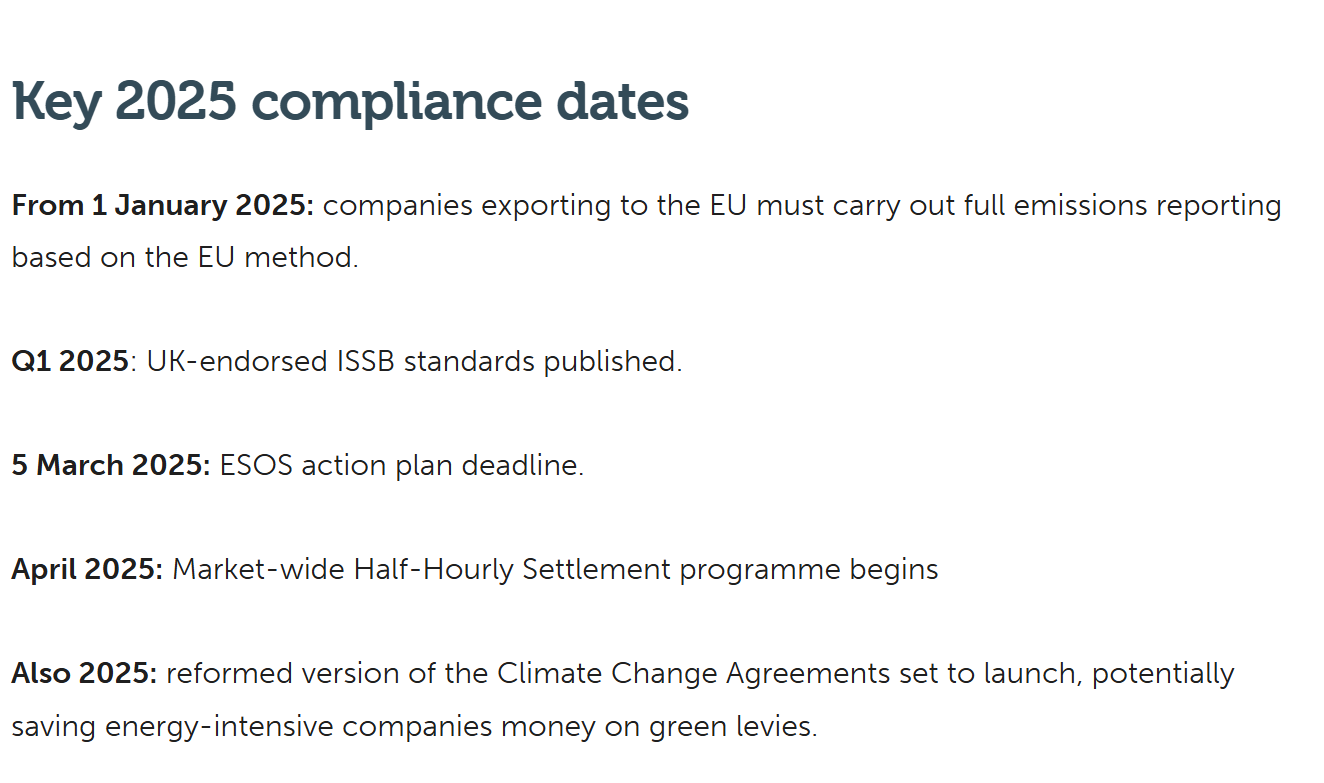Climate Change Agreements: New scheme coming
Energy-intensive businesses are eligible to receive a discount on the Climate Change Levy (CCL) if they set and meet energy efficiency targets, under a scheme known as Climate Change Agreements. In 2023 the government announced plans for an updated version of the scheme and in October 2024 it published the responses to a consultation on this. The application window for new entrants opens in May 2025.
Read our latest CCA blog post for more information.
Corporate Sustainability Reporting Directive (CSRD)
2025 marks the first phase of the EU’s Corporate Sustainability Reporting Directive. This is when it replaces the existing Non-Financial Reporting Directive (NFRD), which was created in 2014 as a step towards improving data availability on how businesses affect the world around them.
If your business was already in scope of NFRD, you will have to change your reporting framework in 2025 (for the 2024 financial year) to align with the CSRD. The scope of the scheme will expand from 2026 onwards.
Check out our CSRD explainer for more information.
ESOS action plan deadline:
Businesses in scope of the Energy Savings Opportunity Scheme (ESOS) are required to create a plan outlining which energy-saving measures they will be implementing and when. If your business was in scope for Phase 3 of the scheme, you have until 5 March 2025 to publish yours. (The original deadline was December 2024 but has been extended after technical issues with the online reporting system.)
EU carbon reporting standard changing
The EU Carbon Border Adjustment Mechanism (CBAM) applies to businesses that export to the EU. It requires them to report on the embedded carbon footprint of their product – that is, all the emissions in the supply chain that brings the product to market. Up to now, there has been some flexibility in how you present the data. But from 1 January 2025, businesses will have to use the “EU methodology” for their reporting. This means collecting information from the businesses you work with because you will need to supply data on, for example, the carbon footprint of raw materials and transport as well as the manufacturing process.
ISSB standards coming out
The International Sustainability Standards Board (ISSB) published its inaugural Sustainability Disclosure Standards in 2023. The UK government has been working on adapting these into UK standards. The UK-endorsed ISSB standards are scheduled for publication in Q1 2025. All future UK legislation on sustainability-related reporting will align with these standards.
Market-wide Half-Hourly Settlement switchover begins
From April 2025, energy suppliers in England, Scotland and Wales will be obliged to begin switching all customers to smart meters that take half-hourly readings. This doesn’t impose any new compliance obligations on businesses (unless your business is energy supply) but it will affect every business as well as every home. If your business is not already using smart meters, you can expect your supplier to get in touch about this.
Key 2025 compliance dates







